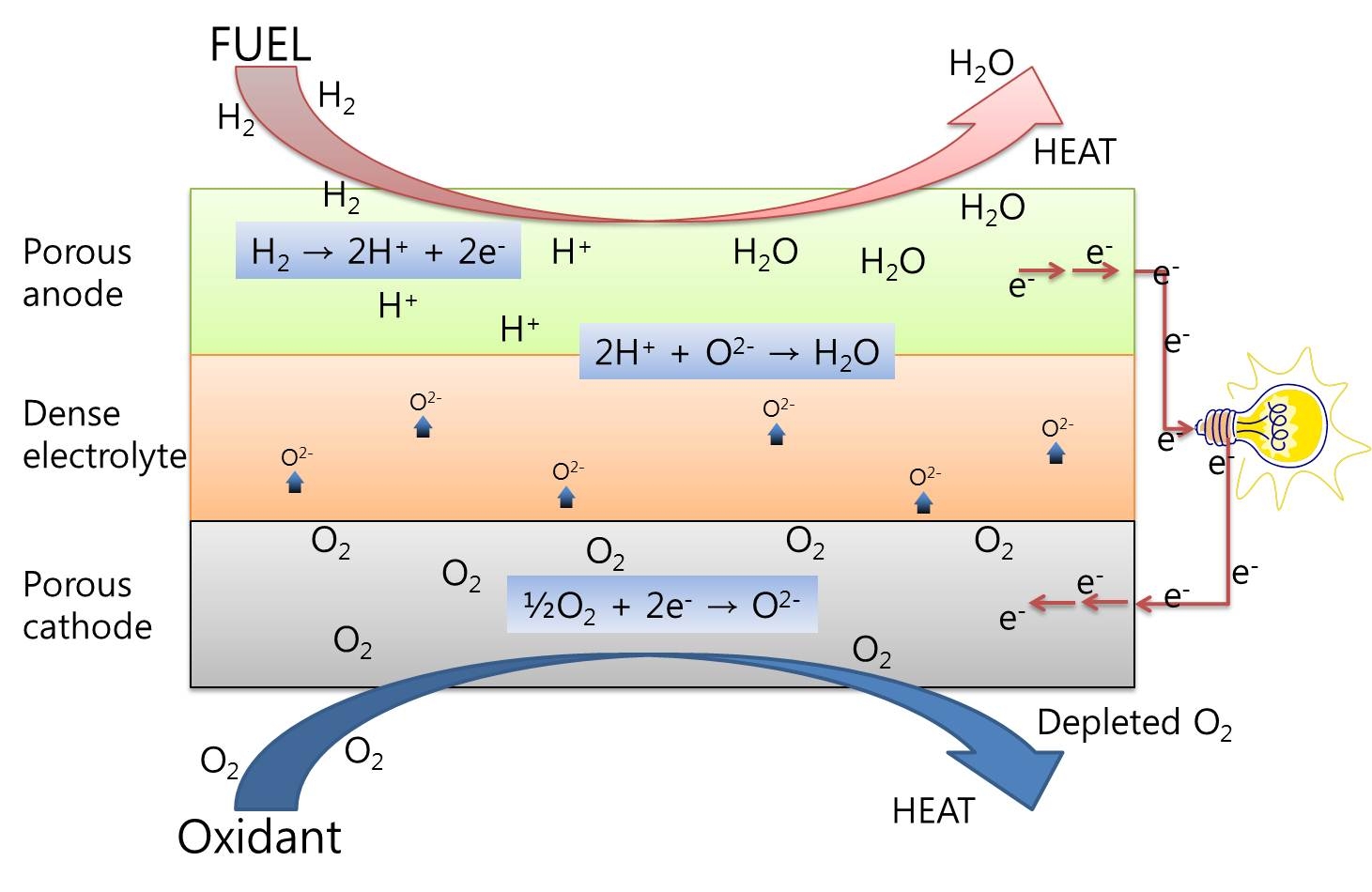A fuel cell is an electrochemical energy conversion device which converts chemical energy directly into electrical energy, and therefore it potentially offers much higher efficiency (> 50%) compared to conventional Carnot-cycle-limited power plants (~ 30%). Also, fuel cells provide clean energy with no or low emission, and are quiet, modular, and local. Thus, fuel cells can play an important role in future energy technologies.
Among the various types of fuel cells, solid oxide fuel cells (SOFCs) have been attractive because of their many advantages such as high energy conversion efficiency, low pollution emissions and various environmental advantages compared with other energy conversion devices. Recently the intermediate temperature SOFCs (IT-SOFCs) which are operated in the range of 500-800℃ have drawn attention due to the various selection of SOFCs components, mechanical stability, less chemical reactivity, and so on.
Our group is engaged in the development of more efficient cell components such as cathode and anode materials as well as novel manufacturing process.
For more details on any of these research activities, see the list of publications.

